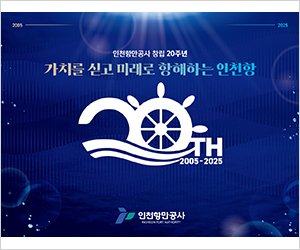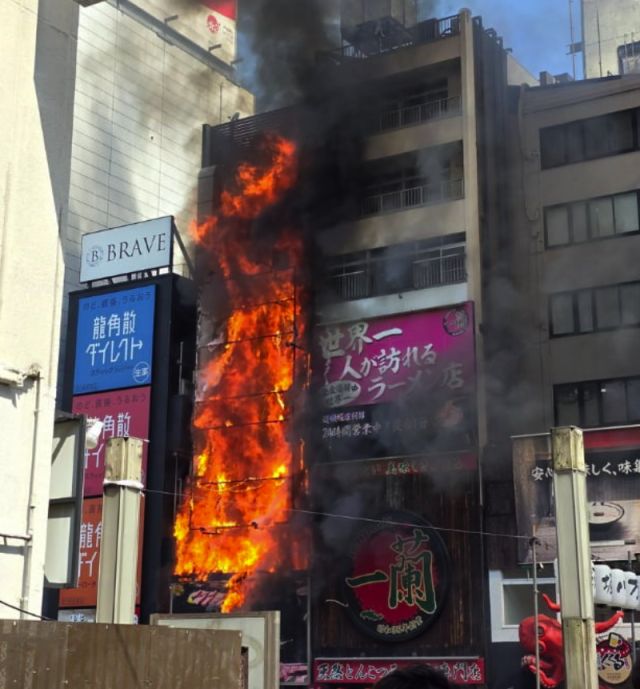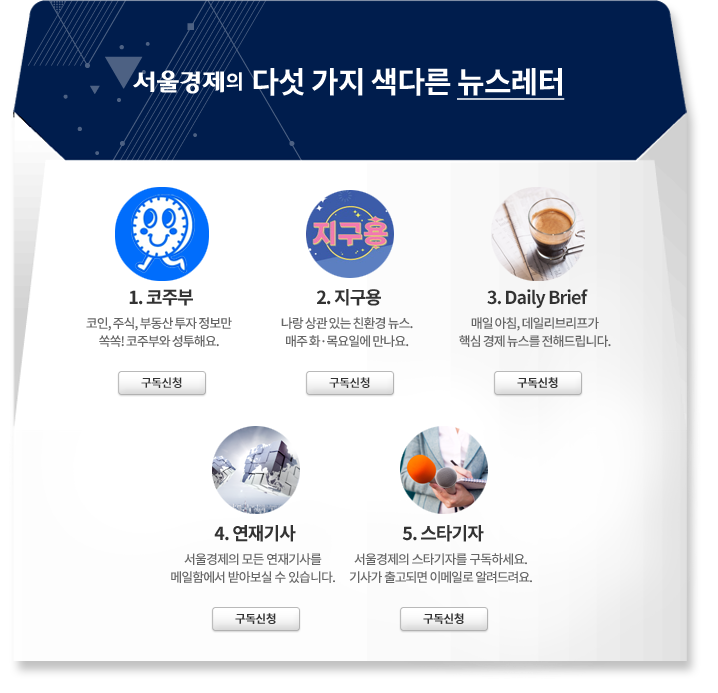< 저작권자 ⓒ 서울경제, 무단 전재 및 재배포 금지 >
[송현칼럼] 금융위기 10주년과 개혁
입력2007-06-10 15:58:42
수정
2007.06.10 15:58:42
[송현칼럼] 금융위기 10주년과 개혁
지난 97년 태국 밧화의 평가절하로 촉발된 금융위기가 발생한 지 벌써 10년이 됐다. 당시 그것은 대부분의 아시아 국가들의 경제와 시장을 망가뜨렸다. 한국 또한 2년간 어려운 시절을 겪었다.
지금은 시간이 많이 흘렀고 한국도 위기를 잘 극복했다. 지금 이 시점에서 그 업적들을 회고하는 것은 향후 한국이 부딪혀야 할 도전들에 대한 약간의 시사점을 줄 수도 있을 것이라고 생각한다.
한국은 지금까지 상황을 신속하게 분석하고 자신의 경제와 금융시장을 재건ㆍ재편할 과감한 결정을 내렸다. 한국은 다른 나라의 선두에 서서 위기극복을 이끌었다. 한국은 현재 더 강한 국가가 됐으며 단합하는 것이 위기를 벗어날 수 있는 길임을 세계에 증명해 보였다.
97년 금융위기 때로 돌아가보자. 당시 한국이 갖고 있었던 선택지는 개혁을 원하느냐 아니냐가 아니었다. 단지 언제 할 것인가 뿐이었다. 당시 한국은 선진 금융시장인 월가에 다소 거칠게 소개됐다. 한국은 글로벌 금융시장과 그것의 잠재적 힘이 단순한 은행영업 수준 이상임을 처음으로 경험했다.
금융위기 후 10년이 지났지만 한국은 여전히 글로벌 금융시장에 통합되는 과정에 있다. 금융위기로부터 한국이 배운 중요한 교훈은 글로벌 금융산업이 빠르게 진화하고 있다는 것이다. 97년 한국의 글로벌 금융과의 상호작용 정도는 글로벌 은행과의 교류 정도에 머물렀고 주로 수출 부문을 지원하는 데 그쳤다. 97년의 경험은 투자자들이 글로벌 시장의 지배자임을 보여줬다.
그때 이후 글로벌 시장은 더 한층 진화했다. 지금은 헤지펀드나 사모펀드 같은 새로운 금융투자 부문에 의해 지배되고 있다. 이러한 변화는 한국이 자신의 금융 부문을 혁신하는 데 분명히 인식할 필요가 있다. 글로벌 금융시장은 빨리 진화한다. 한국 금융시장을 첨단 글로벌 표준으로 이끌기 위해서는 한국도 유연하고 동적인 상태를 유지할 필요가 있다.
한국 금융시장 발전이라는 주제를 생각할 경우 한국이 원하는 것과 해야 할 필요가 있다고 생각하는 것과의 사이에 태생적인 대립이 있다고 생각된다. 한국은 자신의 금융산업을 더 발전시키고 통합하기를 기대한다. 지역 금융허브라는 목표는 금융의 중요성을 인식하고 글로벌 시장에 더 한층 통합되려는 야망을 나타낸 것이다. 이것은 한국에 좋은 목표다. 그러나 대립은 그 목표를 이루는 방식에 있다.
금융허브가 되기 위해서 한국은 규제를 줄임으로써 새로운 플레이어들을 영입하고 금융기관들이 새로운 상품과 서비스를 만들 수 있게 격려해야 한다. 기본적으로 한국은 더 큰 위험을 감수해야 할 필요가 있다. 위험 감수 없이는 이익도 없다. 한국은 목표를 이루기를 원하지만 위험 감수에는 소극적이다. 이것이 한국에 97년과 오늘이 다른 점이다. 그때는 한국이 무엇을 선택할 여유가 없었다. 오늘날 표면적으로는 한국이 많은 선택지를 갖고 있는 것으로 보인다. 하지만 실질적으로는 그렇지 않다. 남아 있는 선택 방안은 단지 금융산업이 한국 경제의 새로운 성장축으로 되게 할 것인가 아니면 단순히 제조 부문을 지원하는 선에서 그칠 것인가 하는 것뿐이다. 만약 한국이 자신의 금융산업을 글로벌 기업들과 경쟁할 수 있게 하려면 사적ㆍ공적 부문에서 한층 더 큰 위험을 감수하게 할 필요가 있다.
10년 전의 금융위기로부터 배울 수 있는 교훈은 많다. 그것은 한국 경제의 구석구석까지 영향을 미쳤다. 위기가 고통스러웠던 만큼 그것은 가치 있는 교훈을 줬다. 글로벌 금융시장의 힘을 보여줬고 한국을 변화시켜 혜택을 입게 했다. 평온한 시대에 변화나 개혁을 하기란 어려운 일이다.
물론 그렇게까지 변화할 긴급성이 지금은 없다는 것은 맞다. 하지만 더 나은 번영을 위해 노력하기에 좋은 시기임은 분명하다. 금융위기 10주년에 서서 과거를 돌아볼 때 그 위기로부터의 교훈은 한국 금융산업의 더 큰 발전을 위해 보다 매진할 것을 주문하고 있다. 이 주제와 관련해서 다른 선택은 없다.
10 Year Anniversary of the Financial Crisis
Recently, we were talking about the "anniversary" of the devaluation of the Thai Baht in 1997 at our office. This was the starting point for the Asian financial crisis that tore through most Asian economies and markets. Korea also went through two difficult years. It has already been 10 years since the crisis. Since then, Korea overcame many challenges. Reflecting on the accomplishments may shed some light on how Korea should take on the challenges that lie ahead.
Ten years ago, Korea could not avoid the financial crisis, but it reacted very well to the tough challenge. Korea quickly analyzed the situation and made bold decision to repair and rebuild its economy and financial markets. Korea led other countries on the recovery path after the crisis. Korea is a much stronger country today compare to before the crisis. One of the lasting legacies of the financial crisis is how Korea acted during the difficult time. Korea demonstrated to the global community, it can unite to deal with very difficult situations—as it has done so throughout its history. In looking back to 1997, the only choice Korea had was when to make adjustments not whether it wanted to reform or not. The real challenge for Korea today is whether it can make bold and decisive reform decision when the time is good as it is today.
In 1997, Korea got a rude introduction to modern finance and Wall Street. It experienced first hand that global financial market and its potential power extended well beyond global banks. Ten years after the crisis, Korea is still being further integrated to the global financial markets. One lesson that is important to Korea from the financial crisis is the fast evolution of the global financial industry. To Korea in 1997, the extent of experiences with global finances was interaction with global banks and business interactions mainly gear toward supporting the export sector. The experience of 1997 showed that the investors became the dominant focal point of the global markets. Since then, the key focal point of the global markets once again evolved. It is now being dominated by the alternative investment segment of the finances—mainly hedge funds and private equity funds. This change needs to be recognized by Korea as it revamps its blueprint for its financial sector. It needs to factor in the dynamic aspect of the global financial market. It evolves quickly. To bring the Korean financial market to the leading edge global standards over time, Korea needs to stay flexible and dynamic. A rigid framework and mindset will only allow Korea to follow the global financial market evolution.
Another observation on Korea's financial market development is the inherent conflict on what Korea wants and thinks it needs to do. For example, Korea wants to fully integrate into and develop further its financial industry. The announced goal of becoming a regional financial hub is Korea recognizing the importance of finance and Korea stating its goal to further integrate into the global markets. This goal is a good one for Korea. However, the conflict I sense is how to achieve the goals. To become a financial hub, Korea needs to lessen its control from the regulatory perspective, invite new players to enter the market, and encourage Korean financial institutions to engage in new products and services. Basically, Korea needs to take more risk. Without taking more risk, the potential gains from the development of a financial hub may not exist for Korea. Korea wants to achieve the goals, but is reluctant to take on risk. This is what is different about Korea in 1997 versus today. Back then, no time to think about what "choice" Korea had. Today, it appears on surface that Korea has many "choices". In actuality, it does not. The only choice it has is to either allow the financial industry to become a stand alone growth industry that can give the Korean economy another pillar of growth or to continue to view the financial industry as a supporting industry for the manufacturing sector. It needs to decide. If Korea decides to really bring its financial industry to compete with the global companies, both the private and the public sectors of Korea need to take on more risk.
The lessons from the financial crisis 10 years ago are many. It touched and impacted every corner of the Korean economy. As painful it was, the crisis gave a valuable lesson to Korea. It showed the power of the global financial market and forced Korea to change and see the benefit from it. Change in good times is a difficult thing. There is no urgency to do so, but it is precisely the right time to look to "invest" effort to ensure future prosperity. As we reflect back on the 10 year anniversary of the financial crisis, the lessons from the crisis tells us strongly that we need to continue to make progress to further develop Korea's financial industry. On this topic, there are no choices.
입력시간 : 2007/06/10 15:58

주소 : 서울특별시 종로구 율곡로 6 트윈트리타워 B동 14~16층 대표전화 : 02) 724-8600
상호 : 서울경제신문사업자번호 : 208-81-10310대표자 : 손동영등록번호 : 서울 가 00224등록일자 : 1988.05.13
인터넷신문 등록번호 : 서울 아04065 등록일자 : 2016.04.26발행일자 : 2016.04.01발행 ·편집인 : 손동영청소년보호책임자 : 신한수
서울경제의 모든 콘텐트는 저작권법의 보호를 받는 바, 무단 전재·복사·배포 등은 법적 제재를 받을 수 있습니다.
Copyright ⓒ Sedaily, All right reserved













































